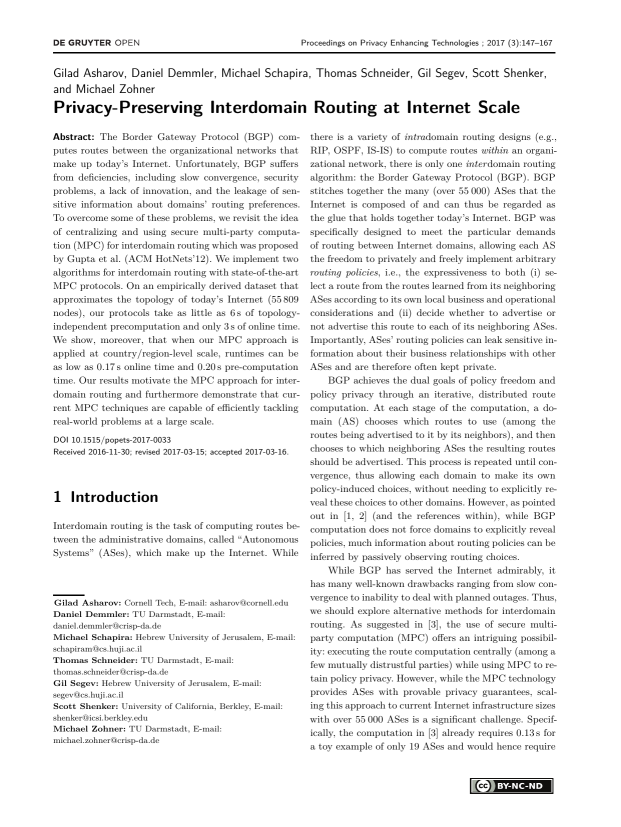Privacy-Preserving Interdomain Routing at Internet Scale
Authors: Gilad Asharov (Cornell Tech), Daniel Demmler (TU Darmstadt), Michael Schapira (Hebrew University of Jerusalem), Thomas Schneider (TU Darmstadt), Gil Segev (Hebrew University of Jerusalem), Scott Shenker (University of California, Berkley), Michael Zohner (TU Darmstadt)
Volume: 2017
Issue: 3
Pages: 147–167
DOI: https://doi.org/10.1515/popets-2017-0033
Abstract: The Border Gateway Protocol (BGP) computes routes between the organizational networks that make up today’s Internet. Unfortunately, BGP suffers from deficiencies, including slow convergence, security problems, a lack of innovation, and the leakage of sensitive information about domains’ routing preferences. To overcome some of these problems, we revisit the idea of centralizing and using secure multi-party computation (MPC) for interdomain routing which was proposed by Gupta et al. (ACM HotNets’12). We implement two algorithms for interdomain routing with state-of-the-art MPC protocols. On an empirically derived dataset that approximates the topology of today’s Internet (55 809 nodes), our protocols take as little as 6 s of topologyindependent precomputation and only 3 s of online time. We show, moreover, that when our MPC approach is applied at country/region-level scale, runtimes can be as low as 0.17 s online time and 0.20 s pre-computation time. Our results motivate the MPC approach for interdomain routing and furthermore demonstrate that current MPC techniques are capable of efficiently tackling real-world problems at a large scale.
Copyright in PoPETs articles are held by their authors. This article is published under a Creative Commons Attribution-NonCommercial-NoDerivs 3.0 license.

